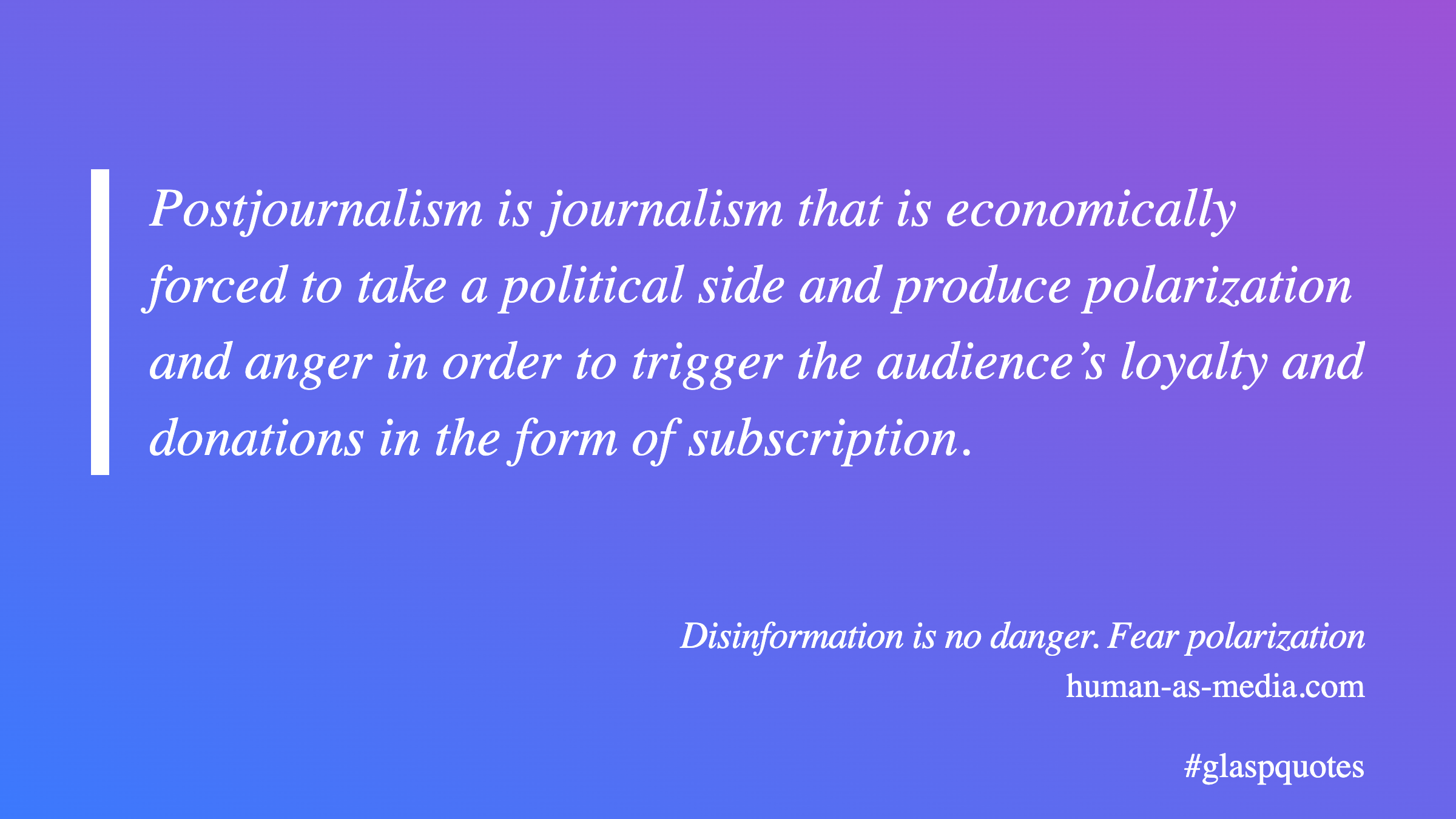A colleague was just telling me about how he hasn't watched the news in approximately three years. He found himself getting so agitated by both sides of the political spectrum and the way the news was presented, that he just quit cold turkey. He feels like he's much happier for the change, and his wife fills him in if something major happens.
It seems as if I'm hearing about more and more people who decide that giving up social media is not enough to keep their frustration in check. Cheri Baker points out that it's not just social media that plays with our emotions.
I’ve decided to stop consuming American news media. It’s easy to criticize Facebook and Twitter for their amplification of misinformation and fear, yet I’ve come to see that the media provides the exact same poison, only in more moderate doses and with a better vocabulary. hypertext.monster
I think at least a part of the problem with modern media is that it's very seldom objective. It can seem almost insulting in its naked biases. In the provocatively titled piece — Disinformation is no danger. Fear polarization from Humans As Media — Andrey Mir argues that we have entered a postjournalism era. The article is an excerpt from Mir’s book Postjournalism and the death of newspapers. The media after Trump: manufacturing anger and polarization. Postjournalism represents the shift from presenting the news to presenting the news with a built-in guiding narrative.
Mir defines postjournalism as normative.

Mir details what makes postjournalism different from the journalism that came before it. While the distinction has always been obvious in media organizations like Fox News, it is now evident in organizations like NPR and others that would still probably attempt to claim objectivity.